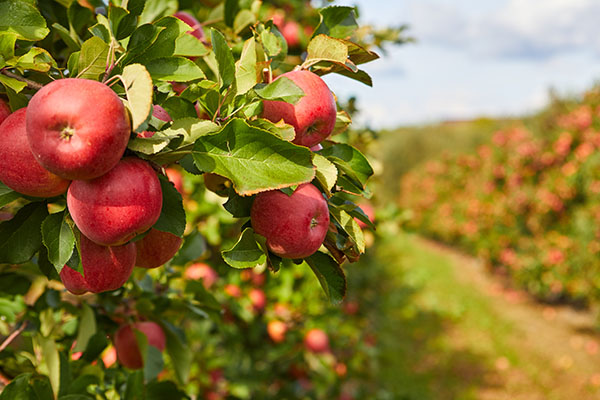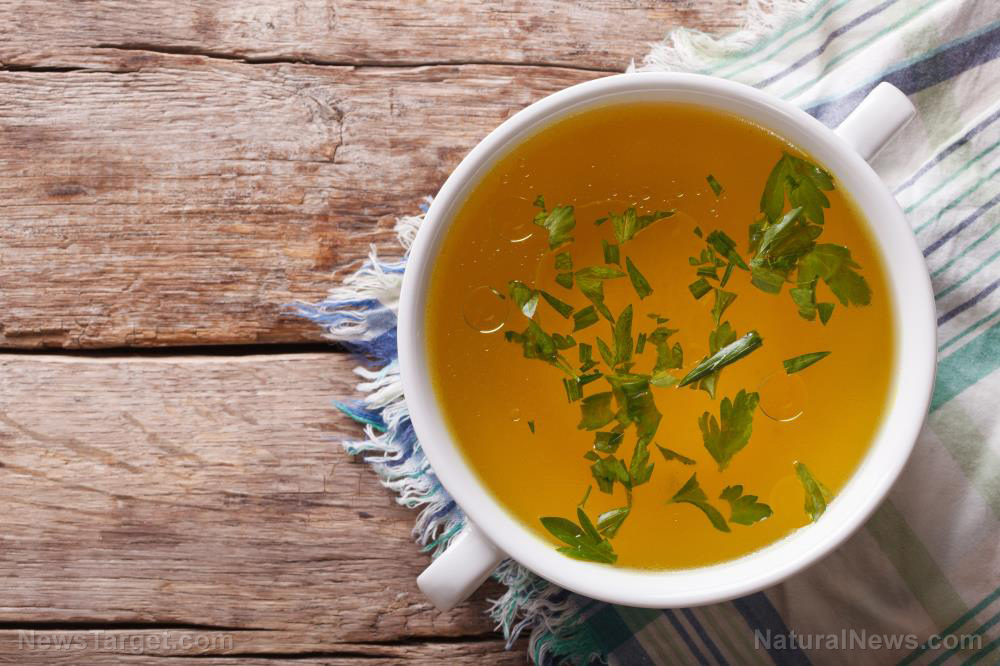
Birgit Wassermann, the first author of the study and a researcher at the Graz University of Technology in Austria, explained that consuming raw fruits and vegetables is key to maintaining a diverse microbial community, which is essential for a healthy gut microbiome and a strong immune system.
But these foods don't need to just be raw, they should also be organically produced. In their study, Wassermann and her colleagues found that while the production method didn't affect the abundance of microbes found in the different tissues of apples, the microbes present in organically produced apples were more diverse than those harbored by conventionally produced ones.
Wassermann and her team chose to study apples because they are popular worldwide. In 2018 alone, about 83 million apples were grown, and production continues to grow today.
Organic vs conventional
Using genetic analysis and fluorescence microscopy, the researchers found that both conventional apples and organic apples had roughly the same amount of total bacteria (about 100 million per apple). While different parts of the fruit contained distinct microbial communities, apple pulp and seeds had the largest bacterial colonies. Apple peels were surprisingly less colonized.
The researchers also found that organic apples had a more diverse bacterial population than conventionally grown apples. Additionally, organic apples contained beneficial bacteria, such as the common probiotic, Lactobacillus.
On the other hand, conventional apples had a greater chance of containing potentially pathogenic bacteria like Escherichia and Shigella, both of which are linked to food poisoning symptoms like cramps and diarrhea.
According to Wassermann, the very diverse microbiome of organically grown apples can help fight human pathogens by outcompeting them. She explained that the microbial pool that organic apple trees are exposed to tends to be more diverse and more balanced, and this helps promote their health by bolstering their resistance to pathogens. (Related: Exploring the ”gut-heart” connection: Can heart failure be treated by boosting gut microbiota health?)
The difference between "organic" and "conventional" fruits
According to the United States Department of Agriculture (USDA), organic is a label for foods that are grown in accordance with certain federal guidelines. These guidelines include factors like soil additives, pesticide use and how animals are raised.
On the other hand, conventional refers to modern, industrial agriculture that uses chemical fertilizers, pesticides and genetically modified organisms (GMOs).
Research suggests that organic produce has a similar nutritional profile to conventional produce, but the former helps reduce your exposure to pesticides and harmful bacteria.
When buying produce, consider other health factors like chronic conditions or pregnancy. To narrow down your search, start by learning about the fruits and vegetables that are more likely to be exposed to different kinds of pesticides.
The EWG's Dirty Dozen and Clean Fifteen
The Environmental Working Group (EWG), an environmental and consumer advocacy group, publishes an updated list of the Dirty Dozen or the fruits and vegetables with the highest rates of pesticide contamination yearly. Here's what they released for 2020:
2020 Dirty Dozen
- Strawberries
- Spinach
- Kale
- Nectarines
- Apples
- Grapes
- Peaches
- Cherries
- Pears
- Tomatoes
- Celery
- Potatoes
EWG also makes a list of the Clean Fifteen, which includes produce with the lowest rates of pesticide contamination.
2020 Clean Fifteen
- Avocados
- Sweet corn (non-GMO)
- Pineapples
- Onions
- Papaya (non-GMO)
- Sweet peas (frozen)
- Eggplant
- Asparagus
- Cauliflower
- Cantaloupe
- Broccoli
- Mushrooms
- Cabbage
- Honeydew melon
- Kiwi
According to Kristin Kirkpatrick, a registered dietitian and the manager of Wellness Nutrition Services at Cleveland Clinic Wellness Institute, it's best to purchase organic dairy products and strawberries to avoid pesticides. If your budget is a little tight, you can buy conventional produce as long as it has outer layers like bananas or pineapples.
When buying produce, choose organic fruits and vegetables whenever you can to naturally promote gut health.
Sources include:
Please contact us for more information.























